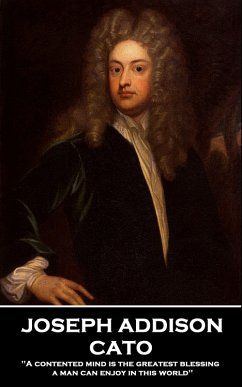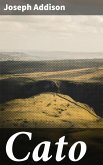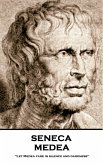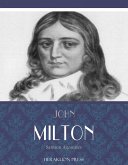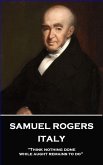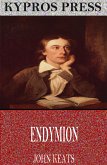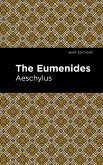Joseph Addison was born in Millstone, Wiltshire on 1st May 1672. Together with his friend Richard Steele he founded The Spectator magazine.
Addison was an excellent scholar at both Charterhouse and Oxford, particularly in the Classics.
In 1693, he addressed a poem to John Dryden, and his first major work, a book of the lives of English poets, was published in 1694. Addison's translation of Virgil's 'Georgics' was also published in 1694.
Dryden, Lord Somers and Charles Montague, 1st Earl of Halifax, now took a closer interest in Addison's work and procured for him a pension of £300 a year to enable him to travel to Europe and the hope of diplomatic employment. In 1702, whilst in Switzerland, news of the death of William III reached him, an event which forfeited his pension, as Halifax and Somers, had now lost their employment with the Crown.
Addison returned to England at the end of 1703 but remained unemployed until the Battle of Blenheim in 1704. The government commissioned Addison to write a commemorative poem about the battle, and he produced 'The Campaign', and on this he was appointed Commissioner of Appeals in Halifax's government.
In 1705, with the Whigs now in power, Addison was given the job of Under-Secretary of State and accompanied Lord Halifax on a diplomatic mission to Germany. Addison had always believed that England's power depended upon her wealth, achieved by commerce, by having the freedom of the seas and the checking of the power of France and Spain.
By 1708 Addison was a Member of Parliament for the borough of Lostwithiel. He was them appointed secretary to the new Lord Lieutenant of Ireland, Lord Wharton and served as an MP in the Irish House of Commons for Cavan Borough from 1709 until 1713.
Richard Steele, in 1709, began to publish the Tatler, with Addison as a regular contributor. In 1711 they started The Spectator. The first issue appeared on 1 March 1711.
In 1713 Addison's tragedy 'Cato' was produced and received with acclamation. He followed this success with a comedy, 'The Drummer' in 1716.
The later part of Addison's life was not without its volatility. In 1716, he married Charlotte, Dowager Countess of Warwick. In his political career he served as Secretary of State for the Southern Department from 1717 to 1718. His political newspaper, 'The Freeholder', was much criticized. Alexander Pope, in 'An Epistle to Dr Arbuthnot', made him an object of derision, naming him "Atticus", and comparing him to an adder, "willing to wound, and yet afraid to strike."
In 1718, Addison resigned as Secretary of State because of poor health, but remained an MP until his death at Holland House, London, on 17th June 1719 at the age of 47. He is buried in Westminster Abbey.
Addison was an excellent scholar at both Charterhouse and Oxford, particularly in the Classics.
In 1693, he addressed a poem to John Dryden, and his first major work, a book of the lives of English poets, was published in 1694. Addison's translation of Virgil's 'Georgics' was also published in 1694.
Dryden, Lord Somers and Charles Montague, 1st Earl of Halifax, now took a closer interest in Addison's work and procured for him a pension of £300 a year to enable him to travel to Europe and the hope of diplomatic employment. In 1702, whilst in Switzerland, news of the death of William III reached him, an event which forfeited his pension, as Halifax and Somers, had now lost their employment with the Crown.
Addison returned to England at the end of 1703 but remained unemployed until the Battle of Blenheim in 1704. The government commissioned Addison to write a commemorative poem about the battle, and he produced 'The Campaign', and on this he was appointed Commissioner of Appeals in Halifax's government.
In 1705, with the Whigs now in power, Addison was given the job of Under-Secretary of State and accompanied Lord Halifax on a diplomatic mission to Germany. Addison had always believed that England's power depended upon her wealth, achieved by commerce, by having the freedom of the seas and the checking of the power of France and Spain.
By 1708 Addison was a Member of Parliament for the borough of Lostwithiel. He was them appointed secretary to the new Lord Lieutenant of Ireland, Lord Wharton and served as an MP in the Irish House of Commons for Cavan Borough from 1709 until 1713.
Richard Steele, in 1709, began to publish the Tatler, with Addison as a regular contributor. In 1711 they started The Spectator. The first issue appeared on 1 March 1711.
In 1713 Addison's tragedy 'Cato' was produced and received with acclamation. He followed this success with a comedy, 'The Drummer' in 1716.
The later part of Addison's life was not without its volatility. In 1716, he married Charlotte, Dowager Countess of Warwick. In his political career he served as Secretary of State for the Southern Department from 1717 to 1718. His political newspaper, 'The Freeholder', was much criticized. Alexander Pope, in 'An Epistle to Dr Arbuthnot', made him an object of derision, naming him "Atticus", and comparing him to an adder, "willing to wound, and yet afraid to strike."
In 1718, Addison resigned as Secretary of State because of poor health, but remained an MP until his death at Holland House, London, on 17th June 1719 at the age of 47. He is buried in Westminster Abbey.
Dieser Download kann aus rechtlichen Gründen nur mit Rechnungsadresse in D ausgeliefert werden.

